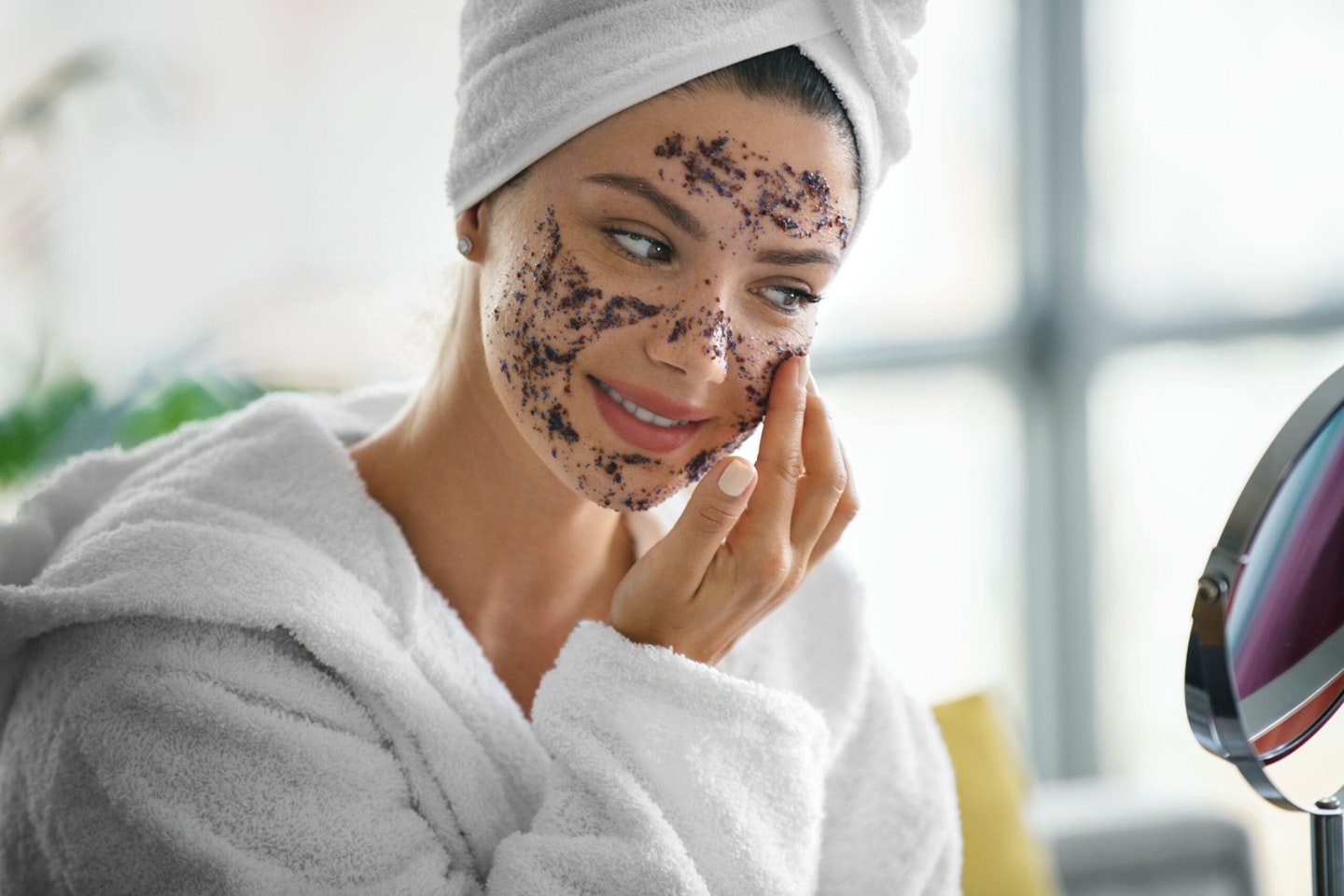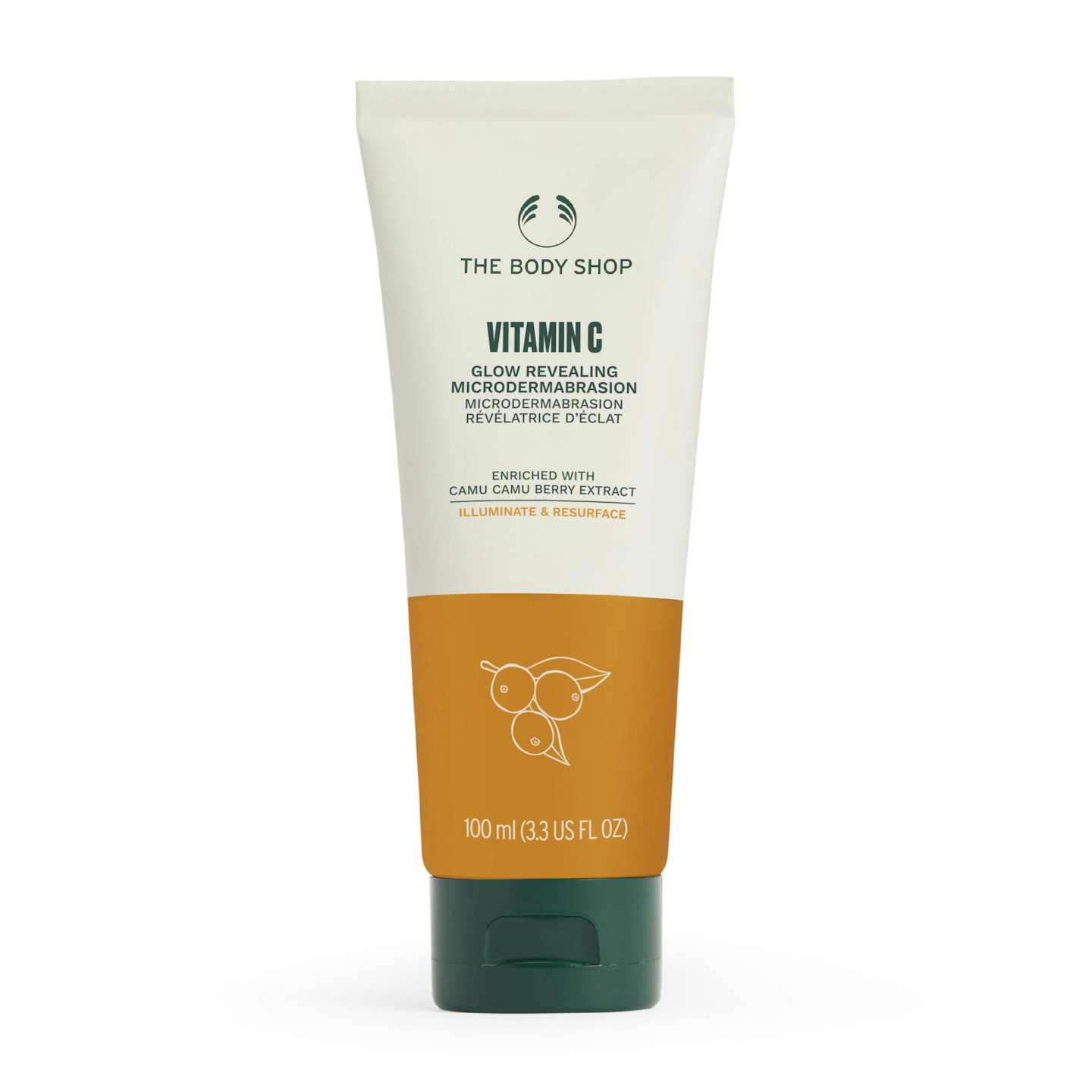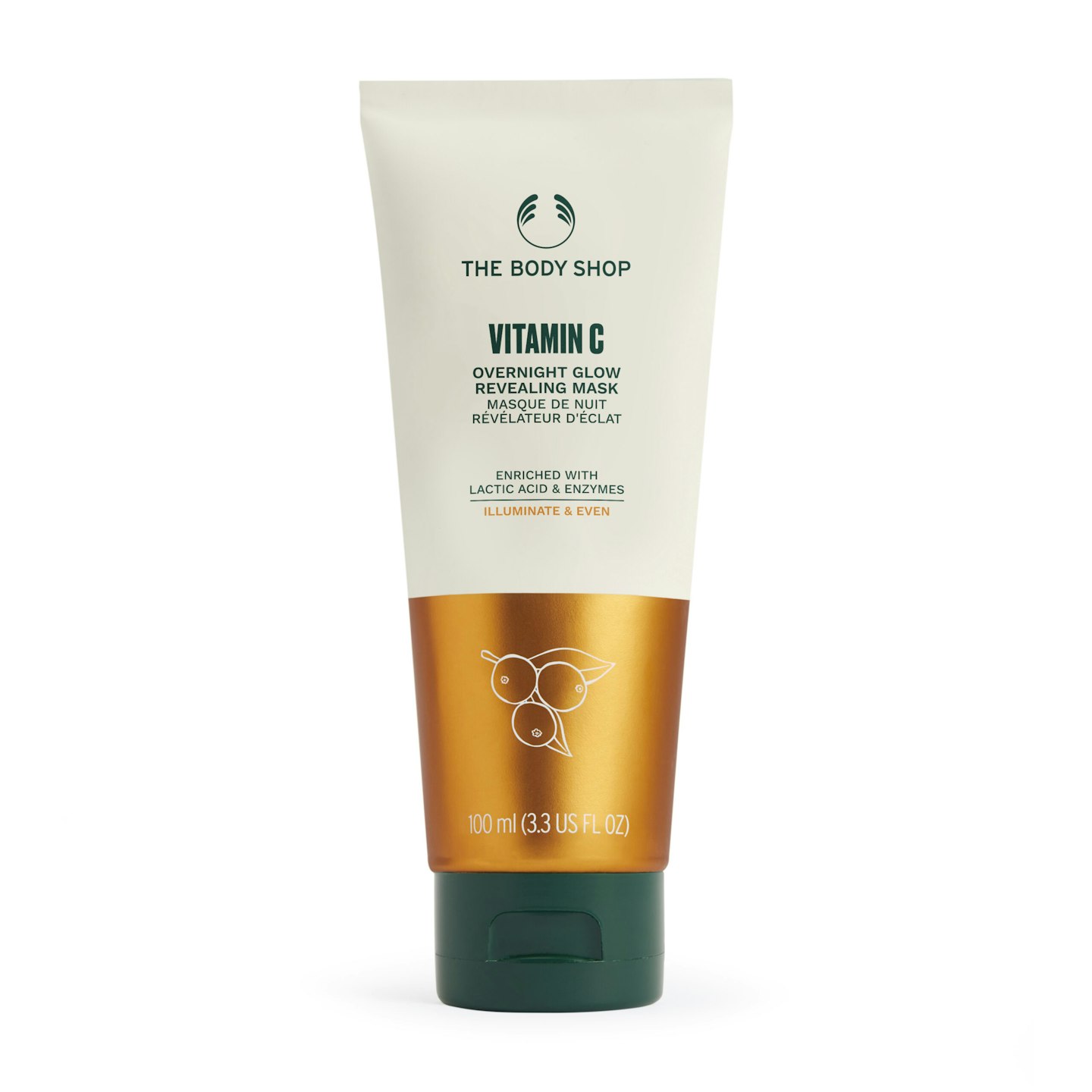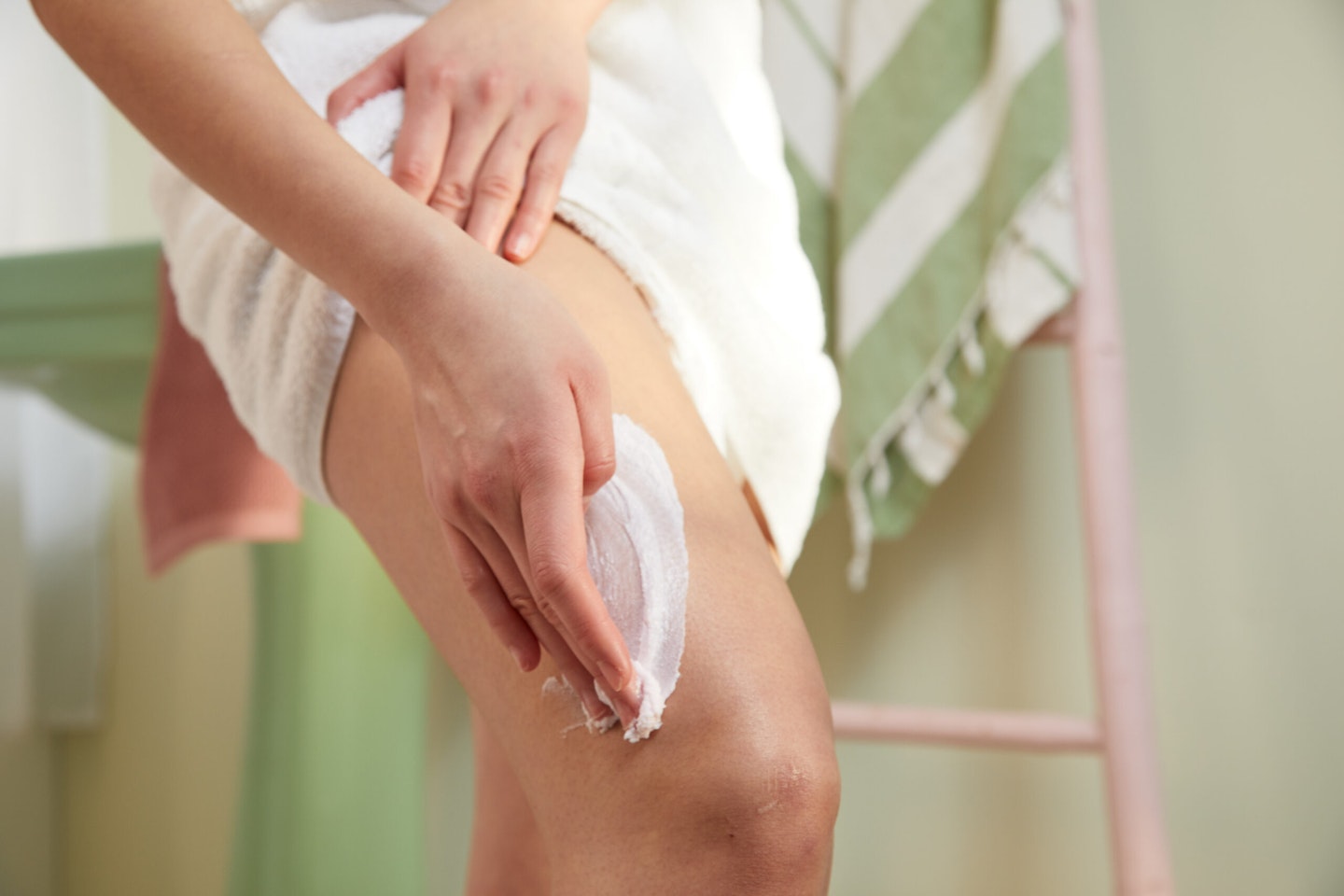How to exfoliate is one of the many questions we ask ourselves. As well as are we scrubbing too hard? Am I over-exfoliating? Is exfoliating your legs different to your face?
We’ve all been there, you think you’re on a roll with your skincare regime and suddenly you’re greeted with new blemishes on your face, such fun – not.
One of the best processes to incorporate is exfoliation as it helps to remove the dead skin cells from the outer layer of your skin, therefore, promoting new, healthier skin to build in its place.
When it comes to skincare there are hundreds of answers for what to and not to do, however, thankfully we spoke to a true professional in this area, Margherita Bonetti, Global Product Efficacy Specialist at The Body Shop to get the full low down on all that is exfoliating.
From how-to's to the best products to use, and what to do after you’ve exfoliated, read on for the best exfoliation guide from an expert.

How to exfoliate
There are two common ways in which you can exfoliate. One is mechanical/ physical exfoliation, whilst the second is referred to as chemical exfoliation. “Mechanical/physical exfoliation can be achieved by adding a face polish to your cleansing routine, a formulation where physical particles are included which help remove dead skin cells through a mechanical action, but also a tool, like a brush or a sponge.” Says Margherita.
An example of a mechanical exfoliator is the Vitamin C Glow Revealing Microdermabrasion. "This buffs away dead skin cells with the help of physical particles and chemical exfoliators, which use acids to help to break down the ‘glue’ between dead skin cells to reveal the brighter, newer cells beneath.”
Once those pesky dead skill cells are banished, you'll be left with silky, smooth skin.
 The Body Shop
The Body Shopwww.thebodyshop.com
“Chemical exfoliation can be achieved using leave-on products including ingredients like alpha and beta hydroxy acids, which help to gently dissolve dead skin cells.” So instead of putting in some muscle work, you simply leave the formula on your skin to do work its magic.
The [Vitamin C Overnight Glow Revealing Mask {href='https://www.thebodyshop.com/en-gb/face/face-masks/vitamin-c-overnight-glow-revealing-mask/p/p109005' target='_blank' rel='noreferrer noopener nofollow' class='add-referrer-link'}) from The Body Shop features lactic acid (AHA) and papaya enzymes. It’s suitable for sensitive skin and clinically proven to increase skin radiance after 4 weeks.
This go-to product works to boost dull skin and also reduce the appearance of dark spots.
 The Body Shop
The Body Shopwww.thebodyshop.com
How often should I exfoliate?
Margherita explains: “Generally, the more intense the exfoliation, the less often it needs to be done.” If you’re planning on using a simple face wash with exfoliating particles in it, this can be done around three times a week. However, if you’re using more invasive scrubbing tools then this should be able one/two times a week.
She continues, “Exfoliation can be mechanical or chemical and the choice between the two options should be guided by your skin type. Every skin is unique and how often you exfoliate depends on your skin type and exfoliation method.”
There are four common types of skin: normal, dry, oily and combination, so finding what type of exfoliation best works for you is all about trial and error. Normal skin types can withstand stronger liquids, whereas when it comes to dry skin, start with gentler formulas, and stay clear of tools to begin with.

Best exfoliator for body?
“As your body’s skin is thicker you want a scrub that is going to thoroughly buff the surface and leave skin feeling super soft and smooth; a sugar-based exfoliator like our Coconut Body Scrub is a great choice for this reason, it’s formulated with Community Fair Trade Organic Coconut Oil, and high level of emollients to ensure skin is left feeling smoother, softer and nourished with moisture at the same time.”
How and when to use an exfoliating glove?
We’ve all seen them whilst waltzing up and down the aisles and exfoliating gloves seem like a nifty little addition to the shower. It’s very important to state that these are to only be used on your body and not your face. Margherita says: **“**An exfoliating glove is usually designed for your body exclusively, the skin on your face is much more sensitive as well as thinner; so, it’s essential to use a specific ‘facial’ exfoliator for your face.”

How to exfoliate legs
If you’re exfoliating your legs in preparation to shave or applying fake tan, then it’s suggested to do this a day before so that the skin isn’t overstressed and has time to settle.
“I like to use a creamy body scrub on its own, suitable for sensitive skin, applying it onto dry skin first and then washing off as it feels more efficient in smoothing the skin,” says Margherita.
What’s the next step after exfoliating?
“I consider exfoliation as an additional step of my cleansing routine, so after that I progress with my serums and creams, never forgetting sunscreen on my face, even in the UK.
"For the body, my routine is simpler but applying a moisturiser like our Body Butters in winter or Body Yogurts in summer, after exfoliation is even more satisfying.”
So, there you have it, the what’s what to know about when it comes to exfoliating. Whether you’re prepping your face and body to get your glow on, or simply giving yourself some ‘you’ time with a bit of self-care, then make sure you’re not forgetting to take your skin type into account when it comes to choosing your product.
